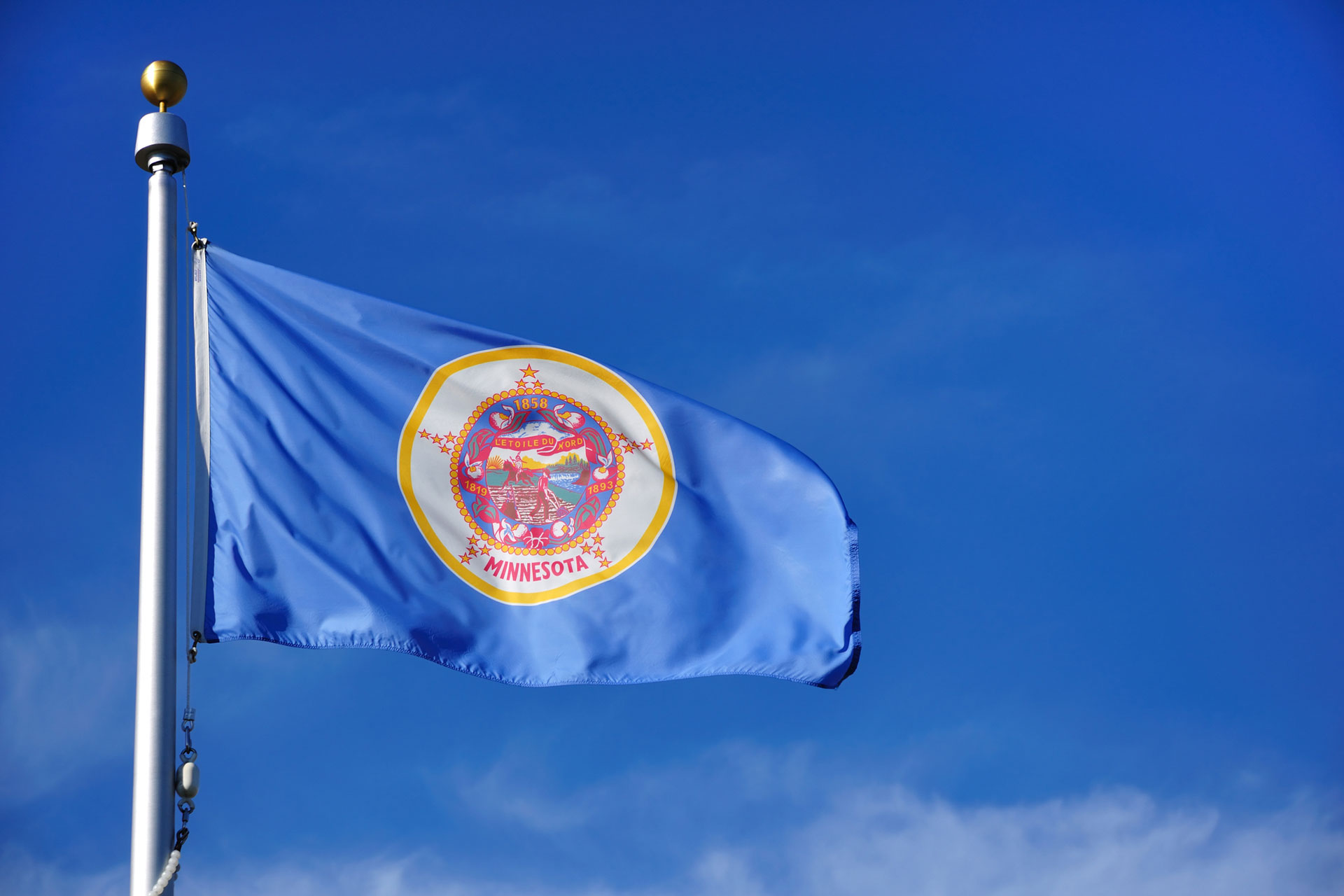Highlights
New Minnesota legislation bans non-compete agreements entered into after July 1, 2023, but does not apply to existing agreements
Employers will still be able to protect their confidential business information through narrowly tailored non-solicitation, trade secret, confidentiality, and nondisclosure provisions
Starting Jan. 1, 2024, employers of any size must provide Earned Sick and Safe Time and must update their policies
Beginning Jan. 1, 2026, employees are entitled to Paid Family and Medical Leave, administered and paid by the state of Minnesota
The Minnesota Legislature has had a busy start to 2023, recently passing bills to restrict the situations when non-compete agreements can be enforced and personal leave that an employer must provide for employees. Minnesota Gov. Tim Walz signed both bills into law.
Non-Compete Agreements Virtually Banned
Recently, many states around the country have instituted restrictions on the enforceability of non-compete agreements, including wage and job-type thresholds. Minnesota’s new law, however, will apply to all employees and independent contractors – regardless of income or the level in the company (i.e., applying even to C-suite executives).
The only exception to the ban is a non-compete agreement that is entered into 1) during the sale of a business where the agreement prohibits the seller from carrying on a similar business within a reasonable geographic area for a reasonable period of time; or 2) in anticipation of the dissolution of a business in which the dissolving partnership or entity agrees that the partners, members, or shareholders will not carry on a similar business in a reasonable geographical area for a reasonable period of time.
The law also prohibits employers from using choice-of-law or choice-of-venue provisions that would apply another state’s law, or allow litigation outside of Minnesota, in a non-competition agreement with an employee or independent contractor that lives or works in Minnesota. This means it could apply to those working remotely in Minnesota for non-Minnesota employers.
The ban applies to all agreements entered into after July 1, 2023. Fortunately for employers, the law does not invalidate an entire contract entered into after this date with a non-compete provision. Instead, courts will remove the non-compete provision and enforce the rest of the agreement. However, employers should consider revising their agreements because the law provides employees – and only employees – with attorney’s fees to enforce their rights under the law.
Other Restrictive Covenants Still Permitted
While the initial proposed restriction applied broadly to all restrictive covenants, the final passed legislation does not prohibit non-solicitation, trade secret, confidentiality, and nondisclosure provisions. Permitting these protections will allow employers to continue protecting their customers, clients, and confidential information from their former employees or independent contractors.
Employers will want to review their agreements to ensure they are appropriately tailored to comply with exceptions and are not construed as a now-banned non-compete provision. Likewise, employers will want to ensure that their agreements include appropriate “blue pencil” provisions, allowing a court to reform an agreement to make it enforceable.
Employers Must Provide Earned Sick and Safe Time
The Minnesota Legislature also passed the Earned Sick and Safe Time law, which created a universal state-run paid family and medical leave program (the 12th state to do so). This was signed into law on May 24 and will go into effect Jan. 1, 2024. The law is similar to those that have been enacted in Minneapolis, St. Paul, Duluth, and Bloomington; however there are slight differences between the state law and existing city and safe time ordinances. The new law allows for more generous benefits, meaning employers must ensure they comply with whichever provisions are more favorable to employees where both state and local sick and safe time leave laws apply.
The new law covers all employees (including part-time and temporary employees) working for their employer in Minnesota for at least 80 hours in a year (regardless of employer size). It does not cover independent contractors or certain air carrier employees (flight attendants and pilots). The leave can be used for many reasons including: the employee’s illness or need for preventative care, to care for a family member with an illness or need for medical care, and absence related to domestic abuse, sexual abuse, or to a public emergency.
Employees must accrue a minimum of one hour of the leave for every 30 hours worked up to a minimum of 48 hours of leave annually beginning from the employee’s first day. Employers must clearly communicate to employees how the year is calculated (e.g., calendar year, employee’s work anniversary, fiscal year, etc.). Clear communication requires listing both hours accrued and used on each earnings statement (in English and the employee’s primary language), a notice about the policy as of Jan. 1, 2024, and notice in their employee handbook.
Employees must be allowed to carry over any unused earned sick and safe time (ESST) from year to year, and are entitled to accrue a maximum bank of 80 ESST hours with two exceptions. As an alternative to allowing carryover, employers may elect to: 1) grant 48 hours at the beginning of the year and pay out accrued but unused ESST at the end of the previous year, or 2) grant 80 hours of ESST at the beginning of each year, in which case employers are not required to pay out accrued and unused ESST at the end of the year.
The law also states that employers need not offer additional time off if their current PTO policy is as – or more – generous than the Minnesota law and allows time off for all covered reasons. For example, if an employer has a sick time policy that does not apply to time off in connection with incidents of domestic violence or school closures, it must extend the policy to cover such time off.
Employee Eligibility for Paid Family and Medical Leave Program
Gov. Walz also signed into law the Paid Family and Medical Leave Program. The program ensures workers could take off up to 12 weeks per year with partial pay to care for a newborn or a sick family member, and up to 12 weeks to recover from their own serious illness. An employee’s leave is capped at 20 weeks per year if they take advantage of both. Reasons for leave include bonding with a new child, caring for a sick family member or their own serious medical condition, managing needs related to a family member’s military duty, and safety leave for victims of domestic abuse or sexual assault. Employees taking Paid Family and Medical Leave are entitled to reinstate in the same or an equivalent position, with few exceptions. Retaliation against an employee for taking leave is prohibited.
The state will administer and pay the benefit, funded by a new 0.7 percent payroll tax on employers. Employers can deduct half of their premiums from workers’ wages. Benefits and the payroll contributions to fund the program will begin Jan. 1, 2026.
Steps Moving Forward
While these three changes are very significant for employers, they are far from the only new employer obligations recently created by the Minnesota Legislature. Some of those changes include:
- Banning no-poach agreements for franchisees
- Requiring new notice requirements regarding pregnancy and lactation accommodations;
- Banning employers from requiring workers to attend meetings (i.e., captive audience meetings) in which the employer opines on religious or political matters
- Expanding protections against wage underpayment for construction workers
Given these changes, employers should consider reviewing their employment and contractor agreements and polices to ensure they comply with the changes – especially in light of the new non-compete ban going into effect soon.
For more information, please contact the Barnes & Thornburg attorney with whom you work or Christopher Rubey at 574-237-1106 or crubey@btlaw.com, Tim Wong at 612-367-8725 or twong@btlaw.com, or Mark Wallin at 312-214-4591 or mwallin@btlaw.com.
© 2023 Barnes & Thornburg LLP. All Rights Reserved. This page, and all information on it, is proprietary and the property of Barnes & Thornburg LLP. It may not be reproduced, in any form, without the express written consent of Barnes & Thornburg LLP.
This Barnes & Thornburg LLP publication should not be construed as legal advice or legal opinion on any specific facts or circumstances. The contents are intended for general informational purposes only, and you are urged to consult your own lawyer on any specific legal questions you may have concerning your situation.















